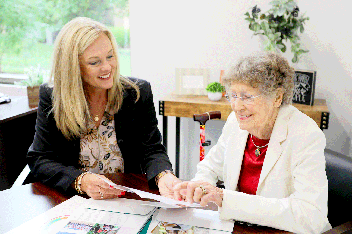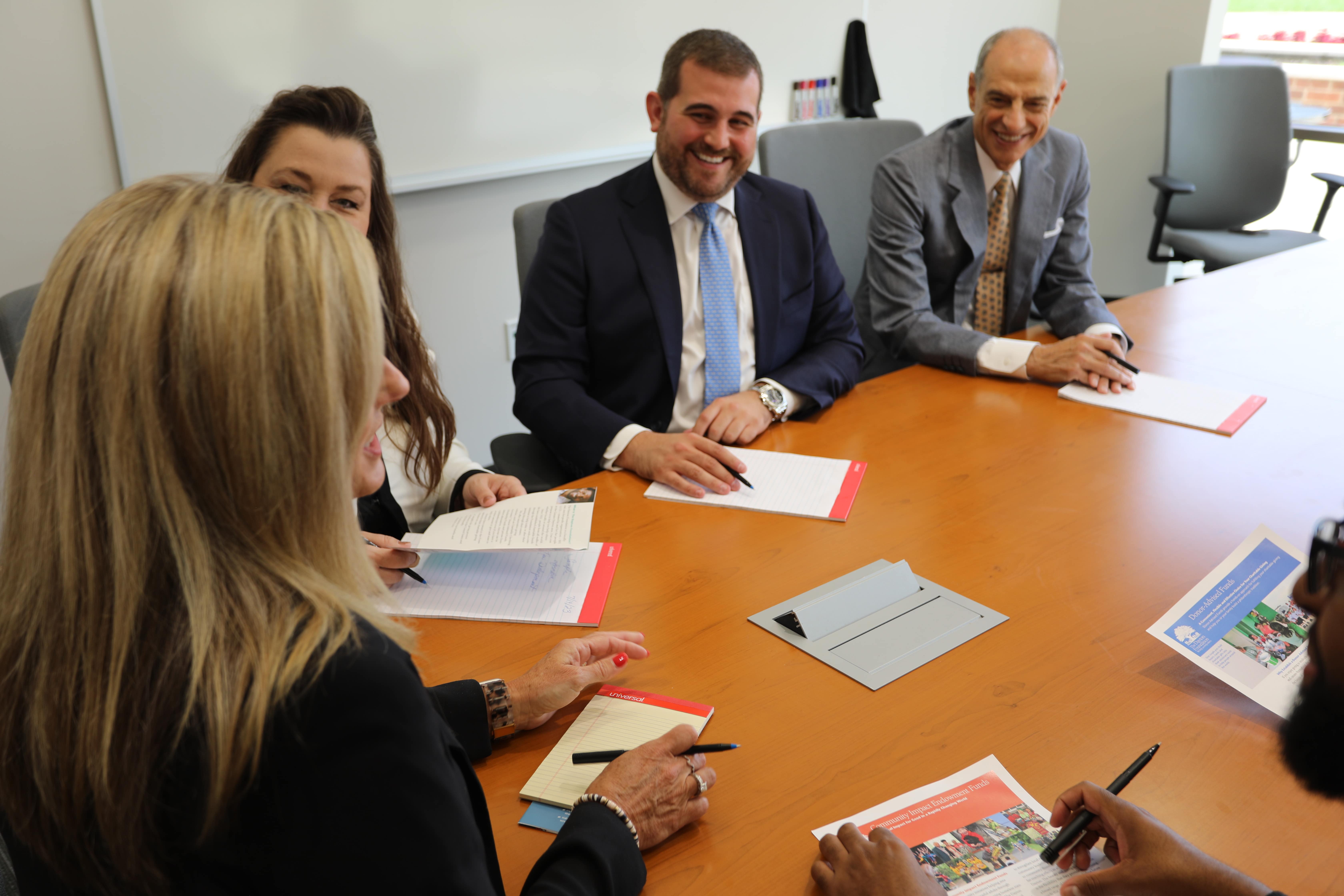How We Can Help You Help Your Clients in an Unstable Market
By Michelle Lovely, CFRE, Senior Vice President of Development and Donor Services
Despite the turbulent market over the past year, Dayton Foundation donors have remained committed to giving to causes and organizations they care about. Unlike 2008 and 2009, when we experienced a drop in the number of new funds opened and number of grants going out, our overall number of grants and new contributions has continued to trend in a positive direction. Even in down markets, charities still need funding. Donors understand this critical need and are anxious to help fill the void.
What does this mean to you as an advisor? As you help your clients navigate the effects of an unstable market, it’s more important than ever to help them think strategically and find tax-smart ways for their giving. One of the first things you should determine is how your clients are making their charitable gifts. Do they have a non-qualified stock portfolio? Certain stocks may still hold significant appreciation after years of market growth. In addition, some sectors may be responding differently to the market volatility and also may be an option. These assets have many tax advantages as opposed to cash contributions. Appreciated stock donations transferred in kind benefit the donor’s bottom line in two ways: avoiding capital gains tax and receiving a tax deduction for the average value of the gift on the date it was received.
As an advisor, you may be looking to rebalance your clients’ portfolios during this turbulent market. Something to keep in mind is how you can include your client’s charitable intentions as part of the rebalancing strategy, while resetting the cost basis at the same time. If your client’s portfolio is over-weighted in stocks, he or she may be feeling vulnerable to the market corrections. Instead of selling off appreciated positions, consider gifting the stock in-kind to a Donor-Advised Fund or Charitable Checking Account℠ at The Dayton Foundation. The donor will receive favorable tax treatment when the gift is made, yet the funds can sit in the fund until he or she is ready to make a gift to charity. If the donor prefers to write checks to charity, you could use that cash instead to purchase new stocks or bonds or even repurchase the same ones you sold and reset the cost basis. This strategy is beneficial because it aligns with the donor’s needs, lets you invest in a more desirable asset for the portfolio and helps with tax efficiencies. If you purchased a stock that begins to rise, thanks to the higher tax basis, your client now will owe less on future taxes when he or she wishes to sell or rebalance. If the stock declines in value with the higher cost basis, you can harvest the loss to offset any realized capital gains. The Dayton Foundation also can help with other asset types beyond publicly traded stocks. Some examples might be non-liquid assets, such as real estate and privately held stocks. Don’t hesitate to reach out to our development staff to run an illustration of what this can look like for your client.
Another strategy you may want to consider for your clients who are over 70 1/2 years of age and have a traditional IRA is a qualified charitable distribution. A QCD avoids both state and federal income taxes and is a popular vehicle for charitable giving. The Dayton Foundation has many options for individuals who wish to give this way. (Find more information here.) We also are seeing some advisors take advantage of the market conditions by converting some of their clients’ assets to a Roth IRA. Because the assets have dipped due to market conditions, advisors are recommending this option because the tax bill will be a bit lower than when the assets were at a higher value. They often are pairing this strategy with a non-qualified stock gift so the charitable deduction can help offset the Roth conversion taxes. We recommend “bunching” or frontloading a Donor-Advised Fund or CCA at The Dayton Foundation in the year of the conversion.
Finally, one of the last trends we are seeing as a result of higher interest rates is an increased interest in charitable gift annuities and charitable remainder trusts. This past year the IRS discount rate has risen at an unprecedented rate. After years of being in the 1 to 2% range, it is now at 4.6%. Many advisors are exploring what this means for their clients and if a plan involving life income with a remainder to charity makes sense.
We are committed to helping you help your clients give in the most tax-wise and convenient way possible, no matter the economic environment. Our staff is available to attend meetings with you and your client or to run an illustration at a time convenient for you. You also can reach out to us to schedule a lunch-and-learn meeting with your team. For more information, contact me or Tori Sorg at (937) 222-0410.
Please note: The Dayton Foundation does not practice law or offer financial or tax advice. The Foundation recommends that people considering establishing funds or legacies through the Foundation consult their financial, tax or legal advisor.








